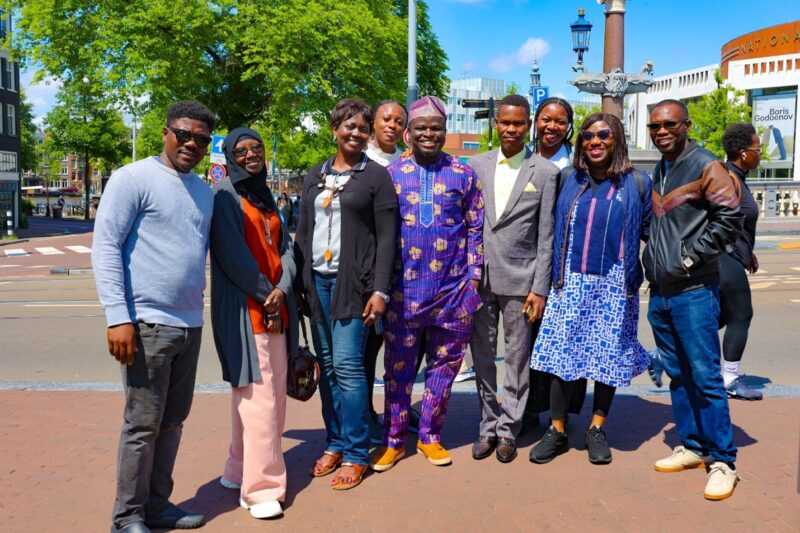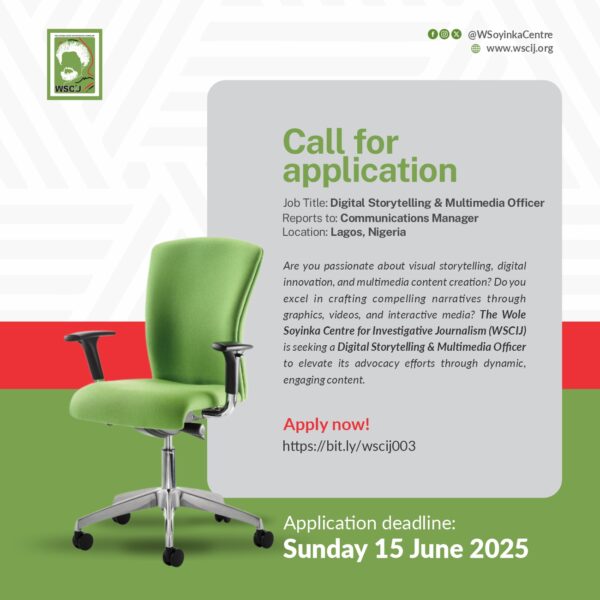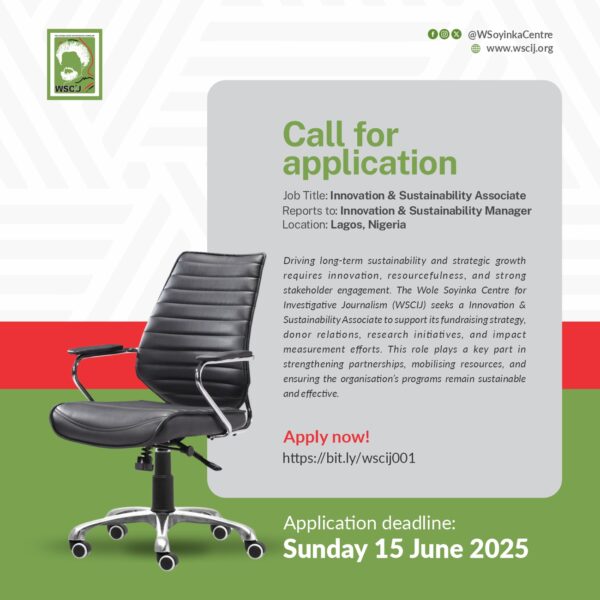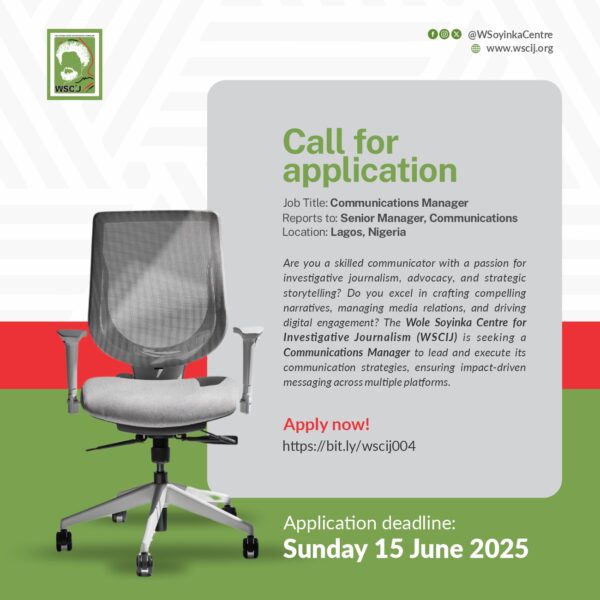Panellists at the conversation organised by the Wole Soyinka Centre for Investigative Journalism (WSCIJ) to mark this year’s World Press Freedom Day have harped on the importance of ethical responsibility, transparency, and cross-sector collaboration in the use of artificial intelligence (AI) in journalism. During the conversation tagged ‘Can the press stay free in an AI-driven world?’ examined how AI is influencing newsroom practices, the state of media literacy, and the social implications of rapid technological change for press freedom and access to information.
In her opening remarks, Motunrayo Alaka, ED/CEO, WSCIJ, acknowledged the potential that AI offers to enhance journalistic efficiency by reducing time spent on repetitive tasks. However, she also warned that the associated threats including the rise of deepfakes, increased surveillance, and algorithmic influence could significantly compromise media independence if not addressed. She pointed out that while these concerns are not entirely new, the scale and reach of technological interference have grown, presenting new challenges for ethics and accountability.
Alaka added that the legal recognition of press freedom in Nigeria does not always reflect the lived reality for journalists. She observed that practitioners still face arbitrary arrests, detentions, and even violent disruptions to their work. According to her, such incidents expose the gap between constitutional guarantees and actual press conditions, highlighting the need for more intentional efforts to protect both practitioners and civic space.
Oluwamayowa Tijani, Director of Projects, Cable Newspaper Journalism Foundation, voiced his concerns about the increasing control that tech companies have over journalistic content. Tijani pointed out that algorithms, which filter content based on user preferences and sensitivities, have made it more difficult for well-researched investigative stories to reach their intended audience. He stressed that this shift undermines the reach and impact journalists have built over time, with even routine news stories being disproportionately affected by AI-driven algorithms that prioritise trends and user queries.
Tijani also highlighted the growing competition between human-run media houses and AI systems that can generate thousands of articles daily by monitoring search trends and social media activity. While AI-generated content draws substantial traffic and ad revenue, Tijani warned that it may crowd out serious journalism, raising concerns that state and non-state actors could use this content to subtly inject propaganda.
He stressed the need for media literacy to help the public critically assess the sources and motives behind the news they consume. He also called for journalists to focus their efforts on stories that require fieldwork, human connection, and deeper context, rather than spending time on routine, stories that AI can handle. By embracing AI for efficiency, Tijani believes journalists can focus on capturing the lived experiences behind data, such as how inflation affects people’s lives, rather than just presenting the numbers.
On his part, Associate Editor at The Nation Newspaper, Olatunji Ololade , raised several critical points about the impact of AI on journalism. Ololade expressed concern that AI could encourage laziness in journalists by encouraging a “cult of indolence,” leading many to rely too heavily on AI tools rather than engaging in real investigative work. He emphasised that fieldwork remains crucial for journalism, particularly for stories that require direct engagement and investigation.
Ololade warned that AI’s increasing influence might distort facts and erode journalistic integrity over time by remixing and recontextualising information. To respond to this, Ololade advocated for the creation of Afro-contextual AI tools that reflect African editorial integrity and cultural context, rather than relying on western biases.
On the issue of AI disclosure in journalism, particularly in relation to the use of AI in editing or enhancing stories Tijani noted that many journalists are unsure about when AI use needs to be disclosed, especially if AI is used for tasks like correcting typographical errors or improving punctuation. He argued that newsrooms should embrace transparency about AI’s role in content creation and share credit where appropriate, especially when AI contributes significantly to a story. He called for open discussions in newsrooms to establish clear guidelines for AI disclosure and credit sharing.
The conversation moderated by Chiamaka Okafor, Media and Information Literacy and Intercultural Dialogue (MILID) Foundation, had in attendance journalists, civil society actors, representatives of the academia among other.
Signed,
WSCIJ Team








